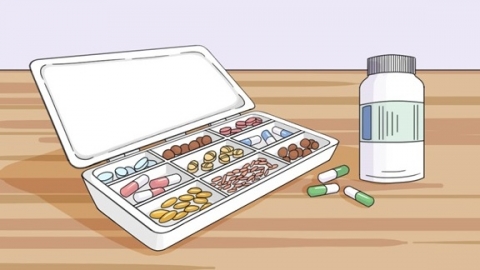Why hasn't my baby's fever subsided three hours after taking ibuprofen?
Common formulations of ibuprofen include tablets, capsules, and suspensions. Generally, if a baby's fever does not subside three hours after taking ibuprofen, it may be caused by insufficient dosage, individual differences in the baby's constitution, viral infection, bacterial infection, infantile emergency rash, or other reasons. If discomfort occurs, it is recommended to seek timely treatment at a reputable hospital. The detailed analysis is as follows:
1. Insufficient Dosage
When parents administer ibuprofen to a baby, if the dosage is not accurately calculated according to the baby's weight and age, the insufficient dosage may affect the fever-reducing effect, causing the baby's fever to persist even after three hours of medication. Before administering medication to the baby, strictly follow the drug instructions or medical guidance.
2. Individual Constitution of the Baby
Each baby has unique physical characteristics. Some babies may respond slowly to ibuprofen, and the time it takes for the medication to take effect in their bodies may be longer, which could result in persistent fever even three hours after administration. Parents should closely monitor the baby's mental state, appetite, and temperature changes, and encourage the baby to drink more warm water.

3. Viral Infection
When a baby contracts a viral infection, the virus multiplies in the body and causes significant inflammatory reactions, leading to prolonged fever. Taking ibuprofen alone may not quickly reduce the fever. If a viral infection is confirmed, antiviral medications such as Xiao'er Chiqiao Qingre Granules, Ribavirin Granules, or Oseltamivir Phosphate Granules may be used under a doctor's guidance.
4. Bacterial Infection
Bacterial infection can cause strong inflammatory reactions in the baby's body, resulting in high-grade fever that lasts for a long duration. Fever may not be effectively reduced within three hours after taking ibuprofen, often accompanied by symptoms such as sore throat and cough. Antibiotic treatment should be administered under a doctor's guidance, such as Amoxicillin and Clavulanate Potassium for Suspension, Cefaclor for Suspension, or Azithromycin for Suspension.
Infantile emergency rash is an acute febrile exanthematous disease caused by human herpesvirus 6 and others. At the onset of the illness, the baby may experience persistent high fever, and the fever-reducing effect of ibuprofen may not be significant. Typically, the rash appears after the fever subsides following 3-5 days of fever. During the febrile period, ensure the baby receives adequate hydration to prevent dehydration. If the baby has a high fever and discomfort, physical cooling methods may be used in conjunction with medical guidance.
In daily life, attention should be paid to the baby's personal hygiene, frequent handwashing, and avoiding crowded places. Adjust the baby's clothing promptly according to weather changes to prevent infections. Ensure the baby receives balanced nutrition and engage in appropriate outdoor activities to strengthen the immune system.










